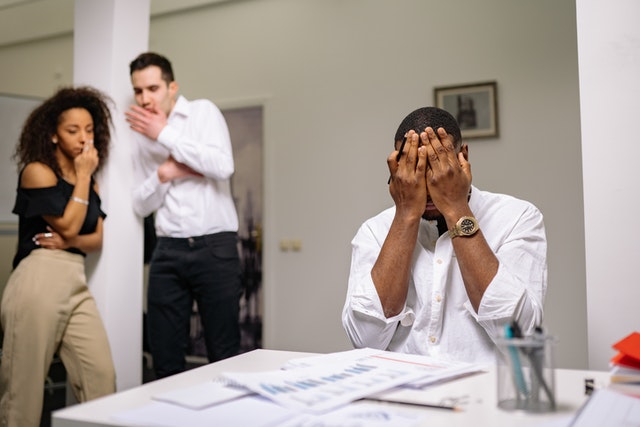This article will reveal why and how Distractions Can Lead Us to Procrastinate. We also unveil how many types of distractions.
Distractions can either be external, such as a phone ringing or a person who suddenly talks to you while you’re trying to concentrate, or internal, such as those thoughts and worries that you can’t seem to put into silent mode. These things keep you from focusing properly. They stop you from doing what you were doing and should be doing. As a result, you may become annoyed or do things less mindfully and commit errors in the process.
Procrastination, on the other hand, is a different form of delaying tactic. When you purposely delay a task at hand for various reasons and resort to giving your time and attention to something else, then you are procrastinating. With procrastination, we’re often making a choice that is not in our best interest, but we decide to do it anyway.
Distractions are often a leading cause of procrastination, whether it is internally caused (fear of failure, perfectionism) or brought by external distractions (emails, phone, social media, other people). When external distractions are the catalyst for our procrastination we are usually secretly happy to be distracted so we can give ourselves an excuse to stop doing what we are doing.
Take note of these typical forms of distraction that can often lead to procrastination.
Table of Contents
Internal Distractions
Internal distractions are the thoughts and feelings that distract us from what we are currently doing. They can be things like
- feeling frustrated,
- worrying about the past,
- or looking ahead to the future.
Some people think of internal distractions as a bad thing. They see them as a sign that you’re not focused on your work or that you’re not capable of doing it well. But there’s another way to look at them. Internal distractions may just mean that you need to change your approach in order to succeed.
There are 3 types of internal distractions that can be a problem for people who are working or doing something.
Fear of Failure
Procrastination is associated with high levels of stress and anxiety. Procrastination is caused by a deep-rooted sense of fear of failure or an unknown possibility.

Procrastinators delay taking action out of fear, worrying the results of their actions will not be favorable. The way to overcome a fear of failure is to not delay action, but understand that the possibility of failure is acceptable.
Achieving an outcome, whether it is perfect or not, is always better as it will give you more time to correct a situation if necessary, as opposed to delaying action or not taking action at all. Remember that not taking action does not leave tomorrow free of stress or worry, but will only amplify an impending situation and possibly make it worse.
Pursuit of Perfection
This is closely linked to a fear of failure. Excessive perfectionism can be detrimental and cause people to procrastinate out of fear of committing mistakes. Remember that between “being open to learn more and improve” and “being perfect,” the former is always a better mindset to have when approaching any work or task.
Don’t lose valuable time chasing perfection. It is not important, and certainly not realistic. Progress is always a much better option than perfection. Instead of chasing perfection, just be happy that you completed or at least started your task.
Insufficient Energy and Interest
These are two different but related distractions that likewise lead to procrastination. First of all, understand the real reason why you might have insufficient energy. Having low energy can be attributed to either a poor diet, lack of sleep, or other lifestyle factors.

If you want to become more productive in your life, you’ve got to make a choice, and prioritize your health. Upon addressing this, you can regain your energy back and be able to do so much more with your life. There’s no cure for having low interest in doing something, other than changing your own mindset.
If you’re not interested in the activity you’re about to do, ask yourself why you don’t. Sometimes, understanding your own reasons can help you tackle the mundane tasks set before you. Understand the purpose behind what you’re doing, and that will create a world of difference.
External Distractions
You can probably think of a million things that distract you externally. These are the things that are usually fun for you, although they can also be people intruding into your personal space. Here are just three of the most common distractions that most people have in their everyday life.
Emails
A common external distraction for many that can cause us to lose productivity throughout the day and procrastinate is our emails. You may be someone who opens their email client a hundred times a day. Instead, open it only once, or if you are in business, set a schedule. Reading emails can cause you to lose track of where you are in your project. You lose your thinking power.

You may have heard about only reading emails once per day, to make it inbox zero. If possible, start your day by completing the hardest tasks first and leave the emails somewhere in between these tasks and the lower priority ones. That way, you leave less room for distractions and won’t let procrastination rule your day.
Social Media
This is a big distractor! No one could argue with that statement. Never start your day by scrolling through your Facebook newsfeed or other social media platforms. In the same way that email can rob you of your time and thought power, social media feeds do the same thing.

It’s our biggest distraction and challenge today. Socializing with friends on social media more than talking to people in real life happens a lot, doesn’t it? Beginning your day on social media is equivalent to starting your day by talking to all of your friends instead of doing productive work first thing.
It makes sense to leave out social media from your day, and only check it out when in a time you would normally ‘visit’ friends.
Other People
External distractions by other people come from a variety of sources.
- Perhaps you’re at the office desk and someone says something funny,
- or someone will start telling you about how their day went.
These types of external distractions often happen at the office and are a significant source of procrastination.
The best way to avoid these distractions is to create a distraction-free zone. This can be done by turning off all unnecessary electronic devices and putting them away from your work area. You should also try avoiding any unnecessary conversations with other people while you are working on something important that requires a lot of concentration.
Spread your love and Share this article with your beloved ones and friends!




